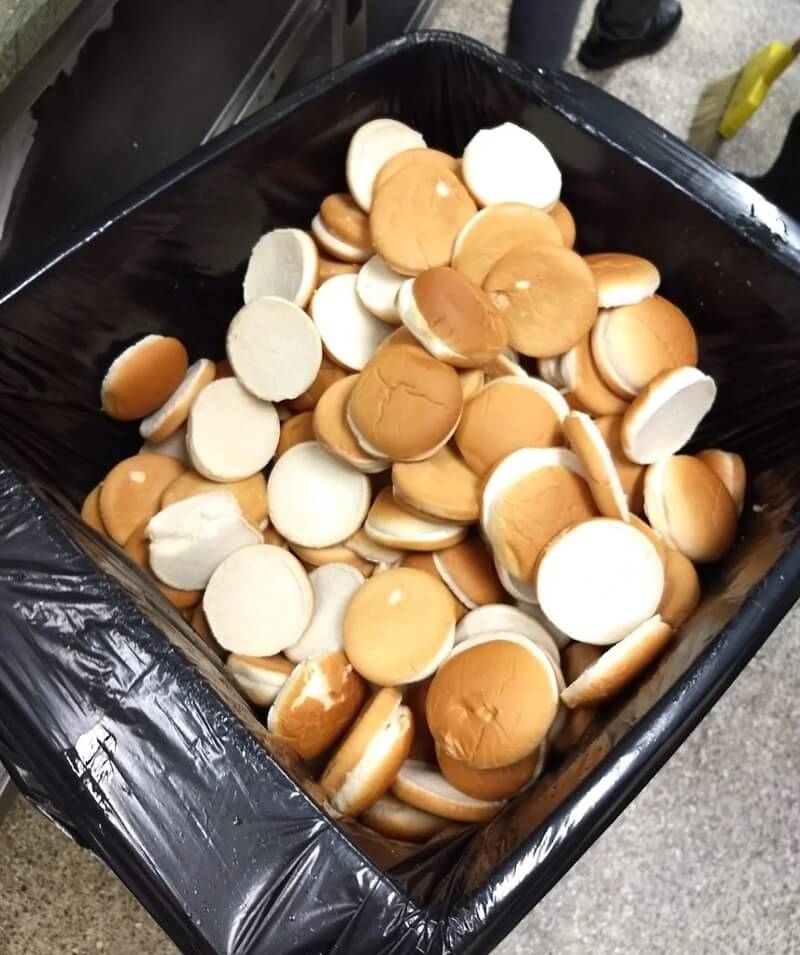Even when it leads to food waste, following food safety guidelines is essential to protecting the health of customers. But that doesn't mean expired food should just be thrown in the trash. There are other options, which is what makes one Redditor's experience working in a college dining hall so tragic.
What happened?
The Redditor shared their story on r/Anticonsumption. "Several years ago now, but we had to toss hundreds of hamburger buns because they were three days old, the maximum allowed under food safety guidelines," they explained. "Not a single one had mold on it or felt stale."

The original poster shared a photo as evidence: a tall garbage can, lined with a trash bag, and full almost to the brim with plain hamburger buns.
"And this is just one dining hall on one college campus," they added. "Imagine the sheer waste across all the dining halls and fast food restaurants…"
"That's a lotta buns. And only three days old?" a commenter agreed. "I thought they let the buns out way longer than that."
Why does it matter what gets thrown out?
Large-scale food waste does several things. First, it raises operating costs for businesses, which means they have to charge more for the food they sell — a major loss for consumers.
Food getting thrown straight into the garbage also means that struggling people are denied meals. As one commenter pointed out, "restaurants are protected under the Emerson Good Samaritan Food Donation Act and won't get sued if they donate the food. They have no good reason not to donate it besides corporate greed."
More broadly, when we throw away food, our society's food industry has to create even more. Limited resources like farmland, water, and energy are used up and tons of heat-trapping air pollution is generated trying to keep up with demand when more efficient use of food could have lessened that burden on the environment.
🗣️ What's the most common reason you end up throwing away food?
🔘 Bought more than I could eat 🛒
🔘 Went bad sooner than I expected 👎
🔘 Forgot it was in the fridge 😞
🔘 Didn't want leftovers 🥡
🗳️ Click your choice to see results and speak your mind
What other options does the dining hall have?
Besides donating unused and still-good food to a charity that could use it quickly, there are other productive ways to "recycle" leftovers.
Some unused food can be used as animal feed. One commenter said, "I am so glad to have chickens, because now whenever someone is like 'There's a single bad grain of rice; let's throw this whole full hotel tray of rice away,' I'm like 'Give it to me! My girls will happily devour all this 'waste.'"
Even if the food is spoiled, it can be turned into compost and used to grow more food.
What can I do about food waste?
Most households will never produce as much food waste as a commercial kitchen — and aren't bound to throw out food just because it hits the three-day mark.
If you want to help businesses waste less food while getting a great deal yourself, check out Too Good To Go, where you get older but safe food at a discount.
Join our free newsletter for cool news and actionable info that makes it easy to help yourself while helping the planet.









